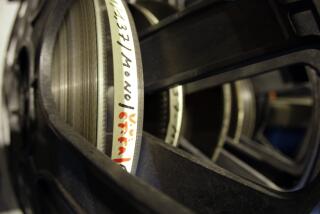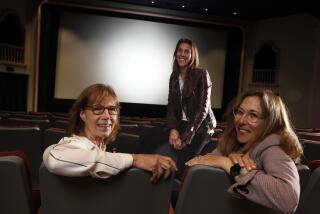In praise of a tiny thing
- Share via
MOST directors believe movies deliver their strongest impact when splashed across 40 feet of widescreen, but Jonas Mekas, the 84-year-old poet, avant-garde film diarist and former columnist for the Village Voice, is praising a new -- and to him perfect -- 1-by-2-inch outlet for his work.
“I call it the Eye-Pod,” he says.
Mekas has been filming himself, his friends and colleagues almost daily since 1949, on film and then video, every so often editing the results into lyrical essay/diary-style movies such as “Walden” (1969), “Lost Lost Lost” (1975) and last year’s “A Letter From Greenpoint.” On Friday, the Maya Stendhal Gallery in New York and the website JonasMekas.com are hosting a 365-day exhibit of Mekas’ iPod-ready shorts, inspired by similar calender-based projects by artists like Pirandello, Petrarch and the late Hollis Frampton. Also promised are homage-style contributions from Mekas’ longtime admirers and fellow New Yorkers Jim Jarmusch and Martin Scorsese.
“Often in my films,” Mekas says, “things run in one- to four-minute segments, like little haikus, so it fits perfectly on the iPod. It’s right there in your hand, not the same as in a theater.
“It’s a much more private, intimate experience, like reading a book or a poem. It’s like a postcard versus a letter, or a text message, even. A letter is more grammatical, sensitive or polished; with a postcard you just jot some notes. The same thing happens on the iPod, and it’s more personal, more condensed.”
Screen size, Mekas believes, doesn’t matter.
“I had a friend, [artist] George Maciunas -- the father of the Fluxus movement, who died in 1984 -- an insomniac who kept this tiny Sony 8-by-5-inch TV going all night. Watching it, I’d get so involved, I found that the size disappears, the screen is forgotten, and you are as involved as you might be watching it at Radio City Music Hall. Even if it’s an action movie or a western -- all the spaces are there.”
More to Read
Only good movies
Get the Indie Focus newsletter, Mark Olsen's weekly guide to the world of cinema.
You may occasionally receive promotional content from the Los Angeles Times.










